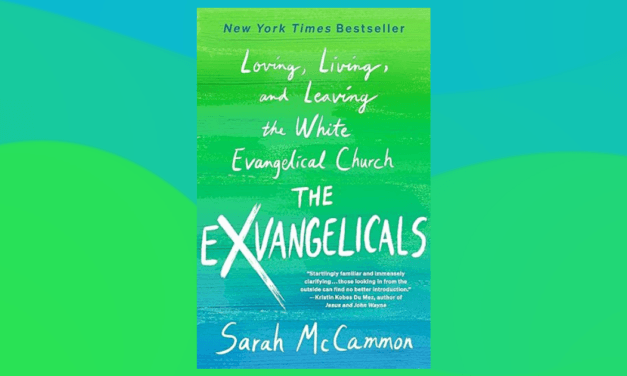Social upheaval in California isn’t exactly news, as the state has a rich history of controversy and political volatility. But the length of its embroilment in arguments over same-sex marriage makes Proposition 8 emblematic of an exhausting debate that’s taking unprecedented financial and emotional toll.
This debate has been around for a while, though public awareness of it is relatively new. Back in 1970, Rev. Troy Perry, one of America’s foremost gay activists and the founder of the pro-homosexual denomination Universal Fellowship of Metropolitan Community Churches, filed a lawsuit against the state of California over its refusal to marry homosexual couples. The suit was promptly dismissed, but the level of public support for gay marriage some thirty-eight years later is testimony to Perry’s persistence in particular, and that of the gay rights movement in general.
So while the Reverend’s case didn’t get far, the issue survived, and as cultural acceptance of homosexuality escalated in the late 1990s, a number of California citizens felt it necessary to utilize the state’s initiative process to insure that marriage in California would continue to mean what it always had. Thus Proposition 22, defining marriage as “a civil contract between a man and a woman,” was placed on the ballot in March of 2000 and then passed by 61 percent of the voters.
Case closed, many sighed in relief. Not so fast, others countered. Proposition 22 was challenged and eventually overturned eight years later by the State’s Supreme Court, which found its legal definition of marriage to be unfairly exclusive. In a 4-3 decision, the Court ruled same-sex couples to be eligible for marriage, leading to approximately 18,000 gay and lesbian couples tying the knot. Predictably, the decision was challenged by the framers of Proposition 8, who sought to yank the matter out of the courts and put it back into the hands of the people, who could vote on whether or not to amend the State constitution to define marriage as a heterosexual union.
Petitioners gathered enough signatures for a ballot measure, California stopped issuing marriage licenses to same-sex couples, and Proposition 8 was subsequently passed (and the traditional definition of marriage reaffirmed) in the November 2008 election by 52 percent of the voters. Yet another State Supreme Court challenge ensued, with advocates for gay marriage arguing that voters didn’t have the right to alter the state constitution. But on May 26, 2009, the Court ruled that the majority did indeed have that right through the initiative process, settling, at least for now, Prop 8’s constitutionality.
This time, though, no one is naïve enough to say, “Case closed.”
As of this writing, lawsuits are pending, a 2010 ballot initiative seeking to overturn Proposition 8 is in the works, and aU.S. Supreme Court showdown is a distinct possibility.
Meanwhile, conservative Christians have been feeling the heat. A number of churches were protested and even vandalized in the aftermath of November’s election, public rallies denouncing Prop. 8 supporters have been headlined by celebrities and attend ed by thousands, and Newsweek magazine’s December 15 cover story promoted a “religious” case for same-sex marriage, chiding Christians who view biblical condemnations of homo sexuality as literal and absolute. All of which presents believers with a quan dary, made up of two primary questions:(1) Do Christians have the right, much less the mandate, to see biblical values legally enforced? (2) If so, how do we decide which values to enforce?
In the interest of developing approaches to social involvement that are responsible and biblically based, let’s answer both of these concerns.
Is Legislation of Biblical Values a Christian Right or Mandate?While some professing believers are adopting a pro-gay interpretation of Scripture, most still consider homosexuality to be a violation of God’s intent revealed in both Testaments, so most Christians won’t personally accept a redefinition of marriage that includes same-sex coupling. The question for most, then, is not whether the Bible condemns homosexuality, but rather, should that condemnation be enforced through laws against gay marriage? More to the point, does Scripture command, forbid, or ignore Christian political activism?
On this point, the Bible in fact commends prioritizing rather than polarizing. The Great Commission to preach the gospel to every living creature (Matt. 28:18–20) ought not to be confused with what’s often called the Cultural Commission to be a Christlike influence in all areas of life (Matt. 5:16; Phil. 2:14–15). We needn’t polarize the two, seeing them as opposites and choosing one over the other. Rather, we should prioritize by seeing the distinction and importance of each.
The Great Commission’s importance is self-evident: humanity is dead and lost apart from Christ; the plan of salvation is made known through preaching; the Great Commission, therefore, is to preach the gospel.
The Cultural Commission is a concept author Chuck Colson articulates as follows:
God cares not only about redeeming souls but also about restoring his creation. He calls us to be agents not only of his saving grace but also of his common grace. Our job is not only to build up the church but also to build a society to the glory of God. As agents of God’s common grace, we are called to help sustain and renew his creation, to uphold the created institutions of family and society, to pursue science and scholarship, to create works of art and beauty, and to heal and help those suffering from the results of the Fall.1
Attempting to choose between these two commissions seems akin to choosing between eating and breathing—both are required for life. Likewise, the church, when functioning properly, cannot help but express the gospel and exert its influence. Both are requisite elements of the faith. And while we can rightfully fear the extreme of seeking political power at the expense of our own integrity, our faith should still be evident in all areas of life, including our work, appearance, manner of living, and the laws we support or resist. As St. Augustine summarized: “Those who are citizens of God’s kingdom are best equipped to be citizens of the kingdom of man.”2
Yet some biblical truths are not legally enforced. It’s not illegal to not be a Christian, for example, though Jesus clearly taught we must be born again. Selfishness is a sin, yet few of us want to see it punished by law. This leads to the second relevant question:
How Do We Decide Which Values to Legislate? Common sense and Scripture both point us toward Thomas Aquinas’s concept of the Common Good, which he described as “things protecting life, preserving the state, and promoting the peace.” Behaviors that don’t violate the common good may be moral matters best left to conscience rather than law; matters that verifiably enhance or detract from the common good become legal matters. No doubt the interpretation of common good will fluctuate, sometimes imperfectly, but the concept still provides useful guidance to believers. By this definition of common good, same-sex marriage seems a matter that does, in fact, warrant concern from believers and responsible Christian activism.
If two consenting adults engage in homosexuality, it could be argued that they do no harm to the common good. Paul’s remarks regarding immorality among unbelievers might apply: “For what have I to do with judging outsiders?….God judges those outside” (1 Cor. 5:12–13 ESV). Likewise, if same-sex couples make con tractual arrangements regarding inheritance, hospital visitation, and property, few would object. But redefining marriage to in clude same-sex coupling raises the question of societal stability and the welfare of children, both of which speak directly to the common good. And if both are affected negatively by this pro posed redefinition, then Christian resistance is called for, not (primarily) because of biblical prohibitions against homosexuality, but because of the negative impact same-sex marriage would have on the common good.
Research indicates that monogamy literally stabilizes cultural life, and that heterosexual couples are far more likely to remain monogamous than homosexual ones.3 Likewise, volumes of research show children raised in a two-parent home by their biological mother and father fare better socially, academically, and emotionally than those raised in alternative arrangements.4
If research consistently shows that children function best when raised by their two biological parents, and that monogamy is more likely among heterosexual than homosexual couples, and if both child welfare and cultural stability impact common good, then a redefinition of marriage warrants Christian concern and response.
One can of course compare a seriously unhealthy heterosexual marriage—one featuring drug addiction, for example, or violence—to a relatively healthy same-sex relationship, and easily conclude that a child will fare better under the care of a stable homosexual couple than with an unstable heterosexual one. But pitting the worst-case scenario of one against the best-case scenario of the other hardly proves the point. One could also argue that a child is better off with a healthy single mother than with an abusive couple, but we’d still conclude that a two-parent home is more desirable.
Granted, some resist any advance in gay rights because of unwarranted prejudice against homosexuals rather than fact-based conviction. But it’s unfair and inaccurate to assume all who object to gay marriage do so out of blind prejudice, when, in fact, they could be basing their position on the reasonable premise that all citizens benefit when the definition and function of the family stays intact. And to those who object that gay marriage confers a basic right on a minority at no expense to the majority, Dr. Judith Wallerstein’s comments on the divorce experiment are apt: “We can learn a great deal by comparing these early days of the same-sex family experiment with the early days of a previous and national experiment with the family. We made radical changes in the family without realizing how it changes the experience of growing up. We embarked on a gigantic social experiment without any idea about how the next generation would be affected.”5
—Joe Dallas
Joe Dallas is the program director of Genesis Counseling in Tustin, California, a Christian counseling service to men dealing with sexual addiction, homosexuality, and other sexual/relational problems. He is a member of the American Association of Christian Counselors and is the author of three books on human sexuality, including Desires in Conflict (Harvest House, 1991) and A Strong Delusion (Harvest House, 1996).
notes
1 Charles Colson and Nancy Pearcey, How Now Shall We Live? (Wheaton, IL: Tyndale House, 1999), xii.
2 Quoted in Jeffrey Myers, “Why We Need to Vote as Christians,” http://barryboucher.typepad.com/ministers_matter/government/.
3 For example, see Glenn T. Stanton and Kjerstein Oligney, “Refuting Points No One Is Making,” http://ww w.citizenlink.org/pdfs/fosi/marriage/AAP_Analysis.pdf; and Peter Sprigg and Timothy Dailey, Getting It Straight: What Research Shows about Homosexuality, Family Research Council, 2004, 96–120.
4 Ibid.
5 Judith Wallerstein, et al., The Unexpected Legacy of Divorce: A 25 Year Landmark Study (New York: Hyperion, 2000), xxii.








